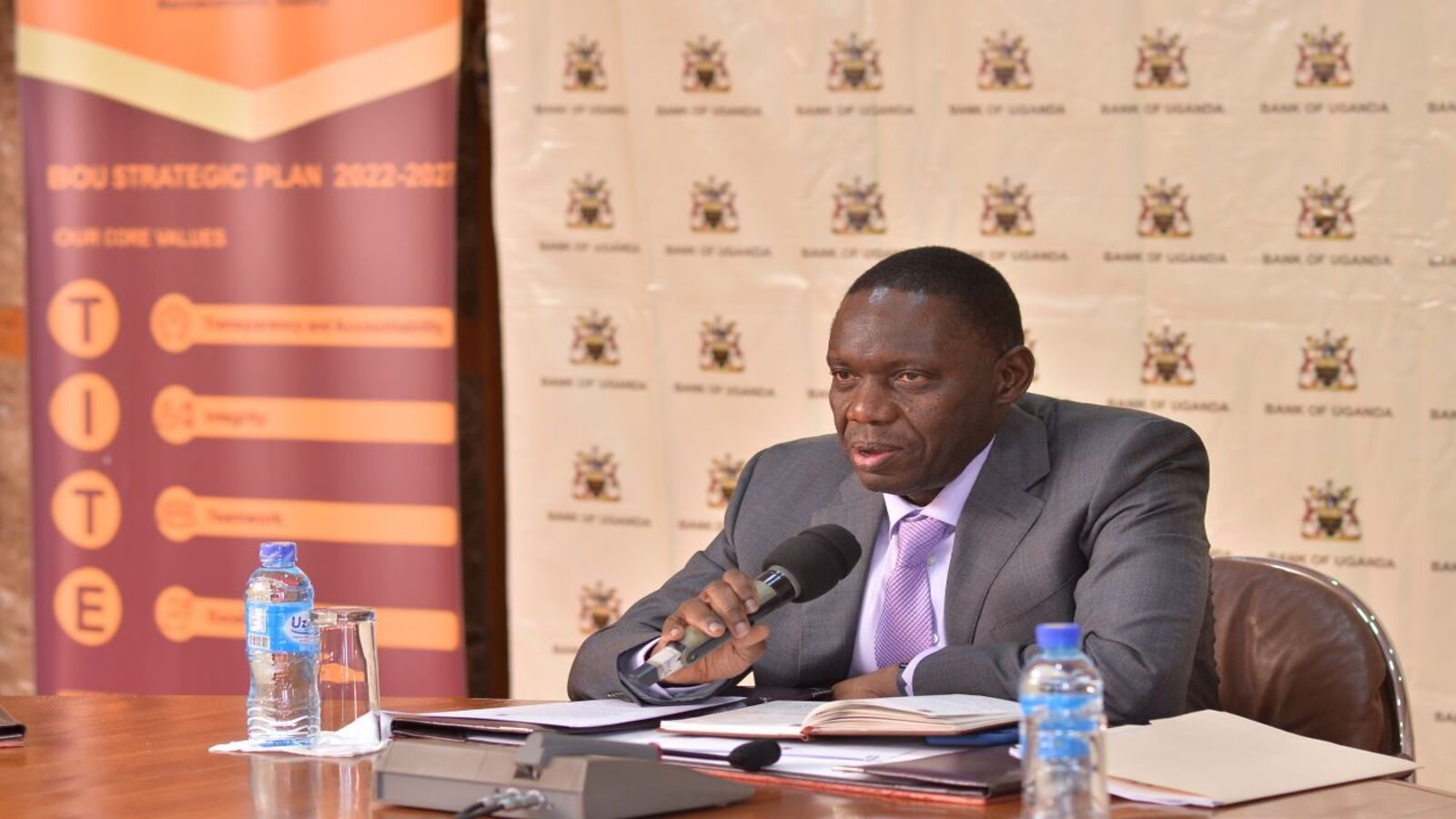Share
The Bank of Uganda is preparing to introduce improved protections for online and mobile transactions in response to the growing need for secure digital financial services as the financial technology sector experiences fast expansion.
According to the Uganda Bankers Association (UBA), the shift towards digital innovation has fueled exponential growth in the financial industry, as seen by a striking rise in bank accounts over the last seven years, rising from under seven million to an amazing 23 million.
UBA Chairperson Sarah Arapta emphasized that cooperation between fintech companies and banking institutions was what caused the sudden upsurge. However, this development created new difficulties in the area of cyber security, which are still developing.
The Bank of Uganda will soon require physical identification from customers who withdraw a minimum amount over the counter, according to Mackay Aomu, Director of the National Payments System Department.

Aomu further revealed during the recently finished two-day Annual Bankers Conference that they thoroughly screen new industry hires and blacklist those who are found to be in breach. Soon, all providers of payment services will be under inspection.
He clarified that new policies based on the Data Protection Act are being provided to bank agents in an effort to combat financial crime. With the help of this endeavor, it will be impossible for an agent involved in illegal activity for one mobile money provider to work for another.
Agents will be required to sign contracts tying them to failures in data protection that cause loss or fraud and lead to their blacklisting.
To help the public recognize attempted fraud, telecom providers and the Uganda Communications Commission (UCC) have conducted awareness campaigns on a number of media platforms, including “tonfera” and “beera steady.”
Swapping SIM cards is one example of fraud, as is using recently registered lines for fraud and coercing account holders into disclosing security information.
Aumo observed that occasionally system vulnerabilities appear as a result of the fast adoption of technologies without sufficient security safeguards.
The conference aimed to analyze Fintech’s contribution to industry growth and address increasing security-related problems.
Fintechs, financial institutions, telecom firms, and regulators must work together, according to Richard Yego, managing director of MTN Mobile Money. The secure and effective advancement of fintech’s contribution to national development depends on this collaboration.
Yego responded to Deputy Governor Michael Atingi-Ego’s request for industry adaptation to evolving public requirements by stating that the emphasis should be on providing banking services rather than conventional brick-and-mortar banks. Yego emphasized that working together would guarantee the efficient and secure delivery of solutions that the general public would find appealing.
Absa Uganda’s Head of Operations and IT, Herbert Olowo, emphasized the value of collaboration in fostering innovation. Cooperation increases public confidence in the established financial industry. He pointed out that traditional banks enjoy greater public confidence than technology-based services, necessitating a collaboration to win over the public.
According to Yego, digital money transfers are safer than traditional cash transactions despite the additional security issues.
The Parish Development Model (PDM) was founded on this idea, which also ensured direct cash distribution within the community by removing intermediaries and dangers.
Fintechs’ complementing role in fostering financial inclusion and deepening was stressed by Josephine Olok, chair of Fitspa (Financial Technology Service Providers Association). She emphasized that in order to maximize this function, regulators must strengthen their oversight.
BOU’s strategy demonstrates its unwavering commitment to maintaining the integrity and toughness of the fintech industry in the face of a dynamic and constantly changing threat landscape.












